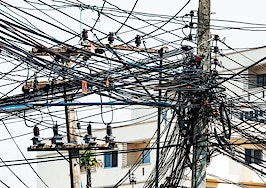This means you simply cannot rank as well with a normal MLS-listing-based website.
Why? Because Zillow and realtor.com are already doing that, and their massive database will always outrank you. Furthermore, Google’s algorithm is expected to get a lot smarter in 2017 with big changes expected in the area of local SEO.
However, smart marketers realize that you don’t need to have thousands of views per blog; you only need your target audience to see your content.
Therefore, smarter marketers are clarifying their target audience, rather than targeting “anyone who is looking to buy or sell in XYZ city.”
Therefore, the next trend will be to create more content marketing with a very specific target audience:
- Hyperlocal areas: ZIP codes, neighborhoods and subdivisions
- Types of clients: First-time homebuyers, upsizing, downsizing, relocation, investors and so on
- Types of homes: Condos, lofts, townhouses, duplexes, lakefronts, estates and so on
- Timing of the transaction: Moving now, moving soon, moving next year
Action step: In 2017, devote some time to content marketing because it will be an absolute necessity to make yourself stand out from the competition.
Advertising and lead generating is temporary, but to build your own brand as the go-to real estate agent in the community, you need to adopt some sort of content marketing strategy.
Final thoughts
If you think you’re an old dog — trust me, you can learn new tricks.
If you think you’re a tech-savvy young hustler, good for you…just keep learning!
Grant Findlay-Shirras is the CEO of Parkbench.com and the Local Leader Real Estate Marketing System. Follow Grant on Instagram and Twitter @MrParkbench.
- Real estate marketing is evolving at a rapid pace, especially when every agent is jumping onto the online advertising bandwagon.
- Virtual reality and 3-D listings will grow in popularity in 2017.
- Facebook Ads are increasing in popularity; therefore, there is a short window for agents to get a good ROI on this marketing strategy.
- In 2017, marketing automation will be adopted by the masses.
- Hyper-targeted messages are going to be the next trend; generic content won't cut it.
When you invest time and money into your marketing, understanding the trends is essential.
Why? Well, for example, if you primarily build your business off Facebook Ads, you can expect your return on investment (ROI) to decrease over the next year or two years — therefore, you’re going to want to experiment with new marketing channels where the total impact may be smaller now, but where ROI is trending upward.
In the holiday spirit of giving, here’s my list of some of the marketing trends you can expect to see in 2017 as a real estate agent.
Virtual reality and 3-D listings will skyrocket
Virtual reality (VR) is gaining traction at an unprecedented pace. And many agents started doing 3-D virtual tours for their listings this year.
If you haven’t tried integrating 3-D tours for your own listings, we highly recommend you give it a try. The most popular providers are Immoviewer (DIY value brand), and Matterport (super premium).
For the Realtor who is stuck at an open house — what a beta trap you put yourself in. Sure, there are things you can do to your open house to make you appear more professional and special; however, at the end of the day, you’re no different than the guy at the department warehouse, walking up to people, asking if they need any help or have any questions. No master of sales puts herself in this position.
For the listing agent, 3-D tours allow you to be more efficient and appear tech-savvy in the eyes of your client. You’re being more efficient so you can prospect more, and you’re saving money on gas.
Does this mean you don’t still “show” your clients around? No. You bring them to your office, where you have a sweet setup with an HD TV, nice chairs, snacks and beverages — and then you control the 3-D tour for the client, and sell your client houses!
For sellers, 3-D tours are a safer and more convenient option.
Having people snoop around my house does not make me feel comfortable. It’s not necessary at all.
Me being there doesn’t affect anything. The house can still be staged and spotless. And vacating my house multiple times for hours on end is a seller experience no one likes or wants — and this can absolutely be avoided.
For the buyer, 3-D tours are a more convenient way of looking at lots of houses in a short span of time, and in the initial research phase of their purchase, it is sufficient. This is because the video quality is HD, and you can totally immerse yourself in a panoramic 360-degree view of the property.
Compared to traditional photos of a listing, 3-D tours offer an interactive experience from the perspective of the viewer that is more engaging and fun.
Do buyers still need to go to the physical home? Absolutely!
However, buyers spending one day “touring” showings without the homeowners having to leave, I think, will become the new norm.
Listing agent action step: Start doing 3-D virtual tours now.
Buyer’s agent action step: Start using 3-D virtual tours now.
Facebook Ads will get more expensive, and your ROI will go down
I know this trend is going to hit our marketing culture, just like the trend of skinny jeans hit our fashion culture. It happened to print, billboards, TV, radio, banner ads, Google ads — and now it’s Facebook’s turn.
Right now, every Realtor investing in lead generation via online advertising should choose either Google Adwords or Facebook Ads or a combination of the two.
This is the smart way to go about it. Marketing gurus like Gary Vaynerchuk and Tom Ferry know that we are in the golden age of Facebook Ads.
Real estate professionals are realizing the benefits of devoting a portion of their budget to Facebook Ads — especially if they are in tier 1 markets like Toronto and Los Angeles. The cost per lead in tier 1 markets ($15-$35-$70 per lead) is lower than the cost per lead in smaller and more rural markets ($20-$50-$100 per lead).
TL;DR: the CPM (cost per thousand impressions) might be lower in rural areas, but the actual cost to acquire a lead in rural area is higher. This is because the tier 1 markets are quite active, lowering the cost per lead as more people are willing to list their homes for sale.
However, the competition to convert these leads into a customer in tier 1 markets are quite high compared to rural areas.
In 2017, Facebook Ads for Realtors will get more expensive. I guarantee it.
And here’s the bottom line for you smart business owners — the increase in Facebook lead cost will far exceed the increase in median home value; therefore, your ROI will decrease significantly over time.
Why am I so sure this will happen?
First, more Realtors are buying Facebook ads. Second, bigger brands are buying Facebook ads. The laws of economics state that when demand exceeds supply, the price of supply increases, and Facebook’s shareholders will demand that their ad revenue go up.
What’s the action step?
- Get into Facebook Ads now.
- Start doing inbound marketing now that will generate you leads in one or two years.
- Start experimenting with other new forms of marketing now — because while the ROI may be smaller now, the ROI may surpass Facebook Ads in 2018 and 2019.
Marketing automation will be adapted by more agents
Only a handful of real estate agents use the power of marketing automation to automate their follow-ups with new leads.
In 2017 more Realtors will adopt and integrate marketing automation into their existing conversion workflow. And the only reason this trend is not happening faster is because real estate professionals just don’t know how to do it, or they can’t afford the full-suite solutions that do it for you.
Marketing automation saves you time and money, especially when you are busy with prospects, clients or family. Here are your two options:
- When a new leads comes in, spend time transferring the lead to your CRM and your email marketing software.
- When a new comes in, spend zero time transferring the lead to your CRM and email marketing software. The lead automatically gets contacted and added to an ongoing lead drip system.
If you can’t afford premium real estate marketing software, here is an article that breaks down the most cost-effective way to achieve marketing automation.
Marketing automation also helps improve lead engagement and conversion.
We’ve all seen the studies that show most leads don’t convert from anywhere between six months to two years, therefore, you need to stay in touch.
To tell yourself that you can manually contact all your leads 24 times, consistently, is a lie for 99 percent of agents. And why waste your precious time when you can invest in marketing automation?
Action Step: Invest in marketing automation software and someone to set it up for you, now!
Meaningful retargeting ads for better conversion
Many real estate agents have some sort of a retargeting campaign running for their existing clients and website visitors.
Side note: If you don’t do “remarketing” or “tag marketing,” set it up now. It’s cheap, and most companies have a support team to help you do it yourself. (Therefore, if you’re paying someone to do it on a monthly basis, you’re probably getting ripped off.)
For those who are already doing retargeting, I bet most of your campaigns have generic messaging and redirect to your homepage.
As the old adage goes, “champions do what others are not willing to do, to get results that others are not getting.”
Does creating more specific and meaningful retargeting campaigns take extra work? Yes! However, you will love the results.
First, segment your audience based on whether they are buyers, sellers, investors and all the sub-types within these groups.
Once they are tagged properly, you can launch individualized ad campaigns targeting these segments specifically. This approach will help you get more leads and conversions from your retargeting ads.
More Realtors will do content marketing — and smart ones will be more targeted
Marketing mavens have been talking content marketing and “becoming a media company” for years.
At Inman Connect San Francisco, Gary Vaynerchuk proposed the “digital mayor” strategy. And in 2017, more Realtors will be creating written, video, audio and visual content than ever.
Why? Content adds value to homeowners. Content is one of the most effective methods of generating organic traffic to your website. Content generates organic (low cost) leads. Content can be used to qualify prospects. Content is, as it has always been, king!
Now, search engine optimization (SEO) and search engine ranking place (SERP) for real estate is getting tougher because of all this content being created by your competition, both small and big.
Google’s latest algorithm changes clearly prefers sites that have useful content for their users for a particular keyword.























